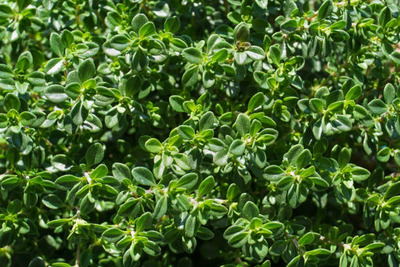
Introduction to Lemon Thyme for Mosquitoes
Welcome, weary travelers of the mosquito-bitten world, to the oasis you never knew you needed: Lemon Thyme for mosquitoes, the aromatic superhero in the battle against those pesky bloodsuckers! Prepare to embark on a journey where you actively reclaim your outdoor adventures from incessant buzzing and itchy welts.
Picture warm summer evenings where you bask in the golden glow of the setting sun, surrounded by the sweet scent of lemon and the subtle hint of thyme dancing in the air. Now, actively imagine blissfully uninterrupted conversations, serene moments of relaxation, and undisturbed slumber—all thanks to the humble yet mighty lemon thyme.
But wait, there’s more! Lemon thyme doesn’t just delight the senses with its citrusy fragrance and earthy undertones; it actively boasts powerful mosquito-repelling properties. Say goodbye to chemical-laden sprays and sticky lotions—Lemon Thyme actively becomes nature’s elegant solution to your insect-related woes.
Join us as we actively uncover the secrets of this remarkable herb, learn how to actively harness its potential, and actively reclaim your outdoor sanctuary from the clutches of those buzzing nuisances. Whether you’re an active gardening guru, an active culinary connoisseur, or simply seeking active refuge from the mosquito onslaught, Lemon Thyme actively becomes your newfound ally in the active quest for peace and tranquility.
Brief Description, Origin, and History of Lemon Thyme
Lemon thyme, with its refreshing citrus scent, originates from the Mediterranean region. Moreover, it belongs to the mint family and is closely related to common thyme. Additionally, lemon thyme stands out for its lemony aroma and flavor. Throughout history, lemon thyme has been valued for its medicinal properties. Furthermore, ancient Greeks and Romans used it in their cuisine and medicine. Notably, the name “thyme” comes from the Greek word “thumos,” meaning courage. As trade routes expanded, lemon thyme spread globally. Consequently, today, it is cultivated worldwide for its culinary versatility and health benefits.
All About Lemon Thyme for Health
Lemon thyme packs a punch when it comes to health benefits. It’s rich in vitamins and antioxidants, boosting the immune system. Essential oils in lemon thyme aid digestion and reduce inflammation. The herb’s aroma clears congestion and soothes respiratory issues. Lemon thyme’s antimicrobial properties make it effective against bacteria and viruses. Additionally, it provides stress relief through aromatherapy. Incorporating lemon thyme into daily routines is simple and beneficial.
Common Applications of Lemon Thyme
Lemon thyme finds widespread use in various applications due to its versatility and effectiveness. It imparts a vibrant citrusy essence to culinary creations, whether fresh or dried. Moreover, incorporating lemon thyme into dishes elevates their flavors, adding a delightful zest to each bite. Additionally, lemon thyme is a key ingredient in herbal teas, offering a soothing and aromatic experience. Furthermore, its natural insect-repellent properties make it an ideal choice for concocting homemade mosquito repellents and outdoor sprays. Embracing lemon thyme in daily life enhances both culinary delights and outdoor adventures.
- Lemon thyme enhances the flavor of dishes like roasted chicken and salads.
- It adds a refreshing twist to herbal teas, providing a calming and aromatic experience.
- Lemon thyme’s insect-repellent properties make it a natural choice for homemade mosquito repellents.
- It serves as a versatile ingredient in outdoor sprays, keeping pests at bay during outdoor activities.
Tips for Taking Lemon Thyme Effectively
To maximize the benefits of lemon thyme, consider implementing the following strategies:
- Harvest fresh lemon thyme leaves in the morning to capture their peak potency.
- Store fresh lemon thyme wrapped in a damp paper towel within the refrigerator to prolong its freshness.
- Before integrating lemon thyme supplements into your routine, seek guidance from a healthcare professional, especially if pregnant or breastfeeding.
- Experiment with different culinary and wellness applications to discover the versatility of lemon thyme.
What are the Characteristics of a Good-Quality Lemon Thyme?
Identifying superior lemon thyme entails paying attention to certain key attributes:
- Vibrant green leaves exuding a robust lemony aroma signify high-quality lemon thyme.
- Leaves devoid of any signs of wilting or discoloration ensure freshness and potency.
- A pronounced flavor profile boasting citrusy and minty notes characterizes top-tier lemon thyme.
- When selecting lemon thyme, prioritize freshness and aroma to ensure optimal flavor and effectiveness.
What are Some Interesting Facts About the Benefits of Lemon Thyme Essential Oil?
Lemon thyme essential oil offers a myriad of intriguing benefits:
- Functioning as a potent natural insect repellent, it effectively wards off mosquitoes and other pests.
- When diffused, it purifies the air and uplifts mood, fostering an atmosphere of tranquility and positivity.
- Applied topically, it provides relief from insect bites, minor cuts, and skin irritations, showcasing its versatile therapeutic properties.
- Incorporating lemon thyme essential oil into daily routines promotes overall well-being and enhances holistic wellness.
How Can You Create Your Home Remedy with Lemon Thyme?
Crafting personalized remedies with lemon thyme is a straightforward process:
- Blend lemon thyme essential oil with water or witch hazel to concoct a DIY mosquito repellent spray.
- Infuse olive oil with fresh lemon thyme leaves to create a nourishing skincare oil, ideal for promoting skin health and radiance.
- Experiment with different combinations and concentrations to tailor homemade remedies to individual preferences.
- By incorporating lemon thyme into homemade remedies, individuals can enjoy its benefits across various facets of life, from pest control to skincare.
How Do You Properly Store and Preserve Lemon Thyme for Long-Term Use?
Ensuring the longevity of lemon thyme involves employing effective storage and preservation methods:
- Dry fresh lemon thyme leaves thoroughly to facilitate long-term storage, preserving their flavor and potency.
- Freeze chopped lemon thyme leaves in ice cube trays with water or olive oil for convenient access and extended shelf life.
- Properly stored lemon thyme maintains its freshness and efficacy, allowing individuals to enjoy its benefits year-round.
Who Should Avoid Lemon Thyme and Any Contraindications?
While lemon thyme is generally safe for most individuals, certain precautions should be observed:
- Individuals with allergies to plants within the mint family, such as basil or oregano, should exercise caution when using lemon thyme.
- Pregnant or breastfeeding women are advised to consult healthcare professionals before incorporating lemon thyme supplements or essential oils into their regimen.
- By heeding these considerations, individuals can safely reap the benefits of lemon thyme, mitigating any potential risks or adverse reactions.
Practical Tips for Integrating Lemon Thyme Herbs into Your Life
Here are some practical tips for using lemon thyme:
- Grow Your Own: Start a herb garden and plant lemon thyme. It’s easy to grow and requires minimal maintenance.
- Cooking: Experiment with recipes featuring lemon thyme. It adds a delightful citrusy flavor to dishes.
- Herbal Remedies: Brew lemon thyme tea for relaxation and wellness. Infuse honey with lemon thyme for added benefits.
- Aromatherapy: Diffuse lemon thyme essential oil to create a calming atmosphere at home. Its uplifting aroma improves mood and mental clarity.
- Skin Care: Add lemon thyme essential oil to skincare products. Its antibacterial properties cleanse and tone the skin.
Incorporating lemon thyme into daily rituals enhances health and well-being. Start reaping the rewards of this versatile herb today.
Conclusion
In conclusion, lemon thyme emerges as a versatile and efficacious herb, offering an array of culinary and medicinal benefits. Moreover, from enhancing dishes with its invigorating citrusy flavor to serving as a natural remedy for insect bites, lemon thyme proves itself a valuable asset in any household. By integrating lemon thyme into daily routines, individuals can unlock their full potential, promoting both physical vitality and emotional well-being. Thus, embracing the power of lemon thyme enriches life experiences, elevating moments of culinary delight and holistic wellness alike.
FAQs about Using Lemon Thyme for Mosquitoes
1. What is Lemon Thyme? Lemon Thyme is a fragrant herb known for its citrusy aroma and culinary uses. Moreover, it’s celebrated for its natural mosquito-repelling properties.
2. How does Lemon Thyme repel mosquitoes? Lemon Thyme actively produces oils with strong aromatic compounds, including citronella and thymol, which mosquitoes find unpleasant. By planting Lemon Thyme in your garden or using its essential oil, you can effectively help deter mosquitoes.
3. How do I use Lemon Thyme to repel mosquitoes? You can actively plant Lemon Thyme in your garden or pots around outdoor seating areas. Additionally, by crushing the leaves and rubbing them on your skin, you can provide some protection. Furthermore, you can extract essential oil from Lemon Thyme and use it in homemade mosquito repellent sprays or diffusers.
4. Is Lemon Thyme safe for pets and children? Lemon Thyme is generally safe for pets and children when used as a culinary herb or in small quantities for mosquito repellent purposes. However, it’s always best to consult with a veterinarian or pediatrician if you have concerns about specific uses or potential allergies.
5. Can Lemon Thyme be used indoors? Yes, Lemon Thyme can be actively grown indoors in pots or used in essential oil diffusers to help repel mosquitoes indoors. Nonetheless, ensure proper ventilation and dilution when actively using essential oils, especially around pets and young children.
6. Does Lemon Thyme attract any beneficial insects? Lemon Thyme can actively attract pollinators like bees and butterflies, which are beneficial for garden ecosystems. Nevertheless, it actively repels mosquitoes, making it a valuable addition to any outdoor space.
7. How do I care for Lemon Thyme plants? Lemon Thyme is a hardy herb that actively thrives in well-drained soil and full sun. Additionally, actively water the plants regularly, but be careful not to overwater, as they prefer slightly dry conditions. Furthermore, actively prune the plants regularly to encourage bushy growth and actively harvest the leaves for culinary use or mosquito repellent.
8. Can Lemon Thyme be used in cooking? Absolutely! Lemon Thyme is a versatile herb that can be actively used in various culinary dishes. Its citrusy flavor actively pairs well with chicken, fish, vegetables, and salads. Simply actively chop the leaves and add them to your favorite recipes for a fresh, aromatic twist.
